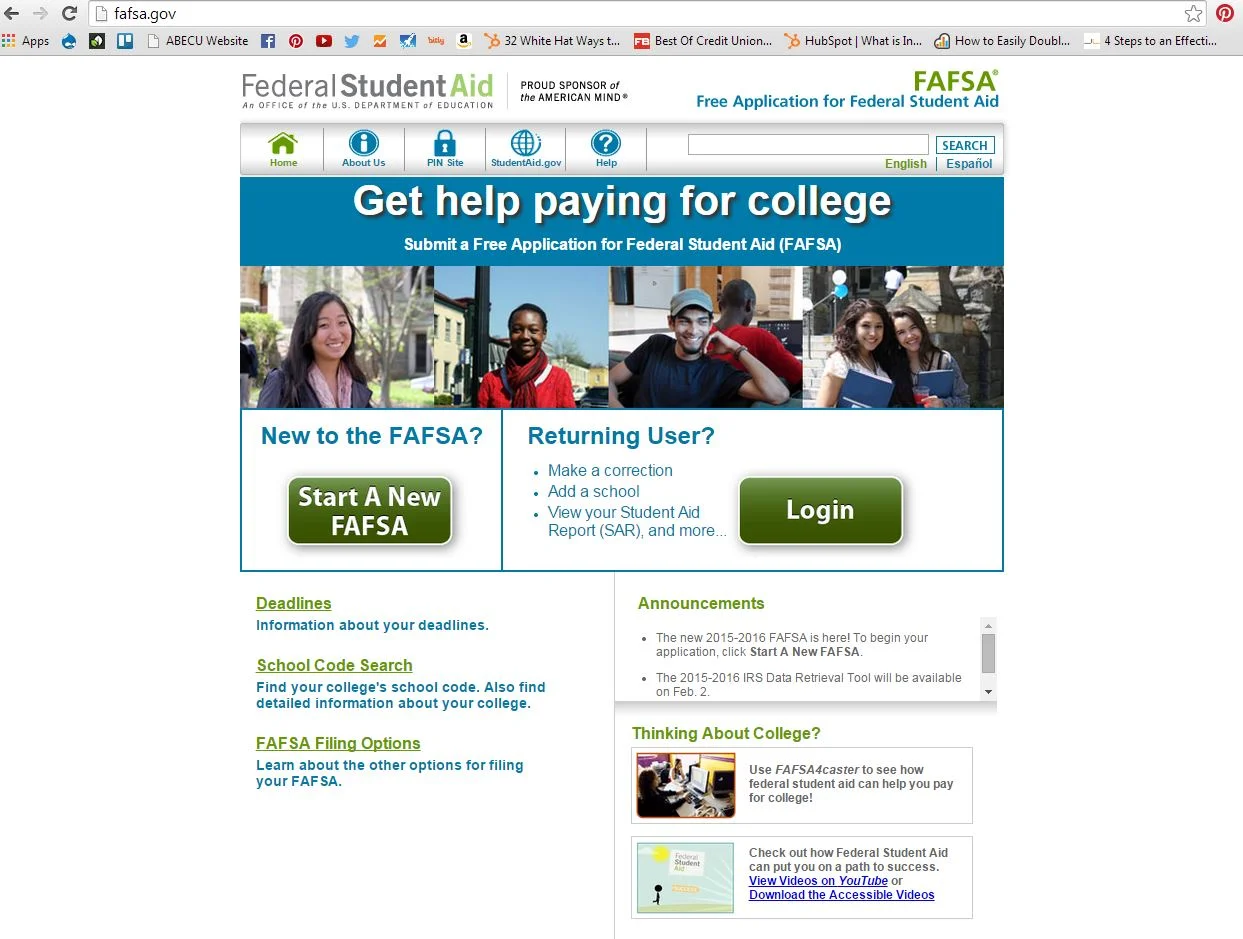Debunking Federal Student Aid: Credit Union Style
The FAFSA became available on January 1st. How do you “C.U.” preparing to tackle this?
I’ll skip right to the point: The hardest part of filing the FAFSA, or Free Application for Federal Student Aid, is just sitting down and doing it.
I see me being very intimidated the first time I sat down to file my FAFSA, but there was no reason for it. Don’t let this process overwhelm you. Allow me to debunk some FAFSA thoughts.
Myth 1: I have to pay to file my FAFSA. This one should be obvious, as the first letter of FAFSA stands for FREE. If a website asks you for payment information, it is likely a scam.
Myth 2: I can file my FAFSA anytime, as long as it’s before my school sends the bill. Since grants are disbursed on a first come, first served basis, it’s important to file your FAFSA as close to January 1st as possible. Each state and different colleges have individual filing deadlines as well. For instance, I had to file my FAFSA each year by March 1st to be considered for financial aid at my college, even though Missouri’s state filing deadline is April 1st. For a complete list of state filing deadlines, click here.
Myth 3: My parents make too much money to qualify for aid. Although a high-earning family may not qualify for federal Pell grants, students cannot qualify for work study, student loans or merit scholarships without filing the FAFSA.
Myth 4: There are many websites available to file my FAFSA. Do not file your FAFSA on any other website than fafsa.gov.
This is what the official FAFSA site looks like. Because of the sensitive information required to submit this document, such as your home address, social security number and family information, it is critical that you don’t visit a fake website.
Myth 5: My parents have to file their taxes before I can file my FAFSA. There’s an option on the FAFSA to estimate your parents’ adjusted gross income based on last year’s tax filing. Just remember to file a correction after your parents receive their income tax return, or you risk receiving an incorrect amount of aid.
Myth 6: I only have to file my FAFSA once. Your FAFSA must be refiled every year. However, once you file for the first time, your information is stored in the database which allows you to confirm or change anything. The only information that changes annually is your family’s income. Your parents may not make the same amount of money year to year, and if one takes a pay cut or loses a job, you’ll want your family’s adjusted income to reflect this to maximize your benefits.
Myth 7: The FAFSA is a long, grueling process. As I prepared to file my FAFSA for the first time, I was quite intimidated. Family members had told me that I needed seven years of tax returns, mortgage statements, and even bank statements. In fact, I needed none of these. The whole process only took me 20 minutes. You simply need your parents’ W-2s or 1040s, your personal W-2s or 1040s, investment values and your family’s net worth. Now, you can even transfer your tax return directly from the IRS in about one minute. It doesn’t get easier than that.
Myth 8: My parents put away money for college, so I don’t need financial aid. You should still file your FAFSA even if your parents saved money for you to attend college. College costs are more than just tuition, so receiving money through FAFSA means getting more out of your college savings. While the money’s use is a bit more limited through a 529 account, any savings from regular accounts can fund your books, trips home, or a pizza here and there if you’re running short on cash.
Myth 9: Loans are not considered financial aid. Loans are, in fact, considered financial aid because they reduce the total out of pocket costs associated with college...up front, anyway. Before you sign your college’s financial aid award letter, be sure to review how many student loans are included. With interest rates soaring near 7% for an unsubsidized federal loan, check out CU choice student loans for a better rate and repayment terms.
Myth 10: Financial Aid is non-negotiable. Although negotiating your FAFSA with the Department of Education is difficult, negotiating with your college or university isn’t as hard as you think. If you’re unsatisfied with your aid package or if something affecting your ability to pay comes up, make an appointment with your school’s financial aid office to see if anything can be done.
We’d love to hear how you see it. What are your FAFSA success stories? Do you have any pressing concerns we can help you with? Comment below!




